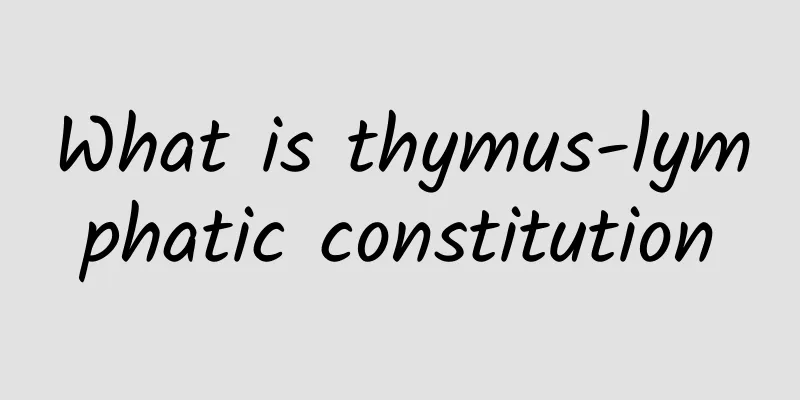Caused by myocardial hypertrophy

|
Competition in modern society is fierce, and those who fall behind will be beaten, so everyone dares not slack off and works overtime day and night. Little do they know that our hearts have been working for a long time and overloaded, which will cause ventricular dilatation and hypertrophy. If not treated in time, it will cause more serious diseases and even endanger our lives. So today I will tell you the causes of myocardial hypertrophy. Myocardial hypertrophy is a powerful form of compensation, but it is not unlimited. If the cause is persistent and cannot be eliminated, the function of the hypertrophic myocardium cannot be maintained normal for a long time and eventually turns to heart failure. Chronic heart failure generally develops gradually on the basis of compensatory myocardial hypertrophy. Guidance: It can be seen in hypertension, congenital heart disease (aortic valve stenosis), hypertrophic cardiomyopathy, etc. What causes myocardial hypertrophy Myocardial hypertrophy includes ventricular thickening and dilation. In cases of hypertension, aortic valve stenosis or pulmonary valve stenosis, the load on the ventricular contraction period increases, and over time, the muscles of the heart wall (referring to the ventricular wall) thicken. Atrial septal defect, ventricular septal defect, patent ductus arteriosus or aortic valve insufficiency increase the ventricular diastolic load and eventually cause ventricular dilatation (dilation of the ventricular cavity). Clinically, ventricular hypertrophy and dilatation often exist simultaneously. When the heart becomes enlarged, the myocardial contractility weakens, affecting the heart's ejection function and the blood supply to the myocardium itself is also poor. Myocardial ischemia or even infarction is likely to occur. After the heart is enlarged, it will no longer shrink. The goal of treatment is to control the further development and maintain the heart's ejection function and the blood supply to the myocardium itself. Cardiomyopathy is a myocardial disease of unknown cause. It does not include specific cardiomyopathy with clear etiology or intermittent systemic diseases). Cardiomyopathy can be divided into three types: dilated cardiomyopathy, hypertrophic cardiomyopathy and restrictive cardiomyopathy. Among them, dilated cardiomyopathy and hypertrophic cardiomyopathy are more common. The cause of cardiomyopathy is still unknown. 1) Dilated cardiomyopathy. Dilated cardiomyopathy may be related to myocardial damage caused by certain factors, viruses, bacterial drug poisoning and metabolic abnormalities. Among them, viral myocarditis is considered to be the main cause. 2) Hypertrophic cardiomyopathy may be related to autosomal dominant inheritance. About 1/3 of cases have a clear family history. Abnormal catecholamine metabolism, hypertension, and high-intensity exercise are secondary risk factors. 1) The main characteristics of dilated myocardium are dilation of the heart chambers, enlargement of the heart, congestive heart failure and arrhythmia. The movement of each valve is normal. Sometimes it is combined with relative mitral or tricuspid regurgitation. |
<<: Myocardial hypertrophy does not affect life expectancy
>>: Symptoms and maintenance of myocardial ischemia
Recommend
Is Danshen hot or cool?
Salvia miltiorrhiza is a tonic with high nutritio...
What is the cause of chrysanthemum bleeding?
The most common causes of anal bleeding are anore...
Can the old Chinese doctor cure neurasthenia?
Neurasthenia is one of the most prevalent mental ...
Is it normal to feel nauseous during ovulation?
The ovulation period is a very special stage for ...
Necrotizing enterocolitis
Have you heard of necrotizing enterocolitis? It i...
Symptoms of EBV infection in children
The EB virus is a lymphotropic virus of the herpe...
How to exercise for lumbar pain?
More and more people are suffering from lumbar pa...
Ten-month-old baby has red bloodshot eyes
Babies need a lot of rest. If there are red blood...
How to prevent H7N9 avian influenza
H7N9 is a type of avian influenza, but it can als...
What to do if you have chest pain after sitting for a long time
Nowadays, most office workers work on computers. ...
What are the must-have medicines in summer?
In the blink of an eye, summer is here again. Som...
Why does it hurt when I lift my arm?
The arm is a very important organ for the human b...
What to do if your facial skin is sagging? How can I relieve sagging facial skin?
Muscles and fat are the biggest support for the s...
What is the reason why children feel nausea and vomiting when they smell strange odors?
Vomiting is a common phenomenon in our lives. Gen...
What's wrong with feeling dizzy and heavy head?
Dizziness is a very common symptom in life. Dizzi...









